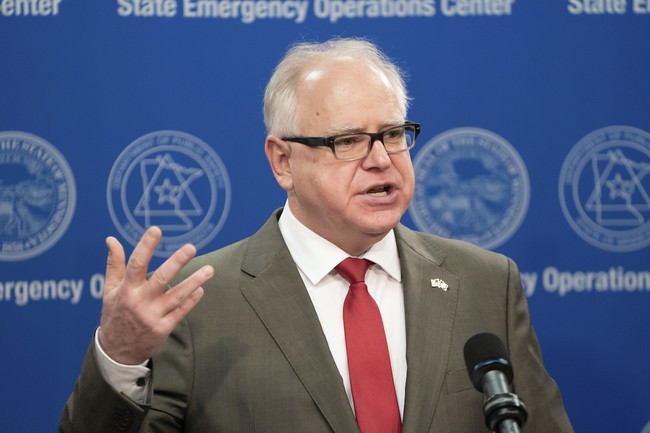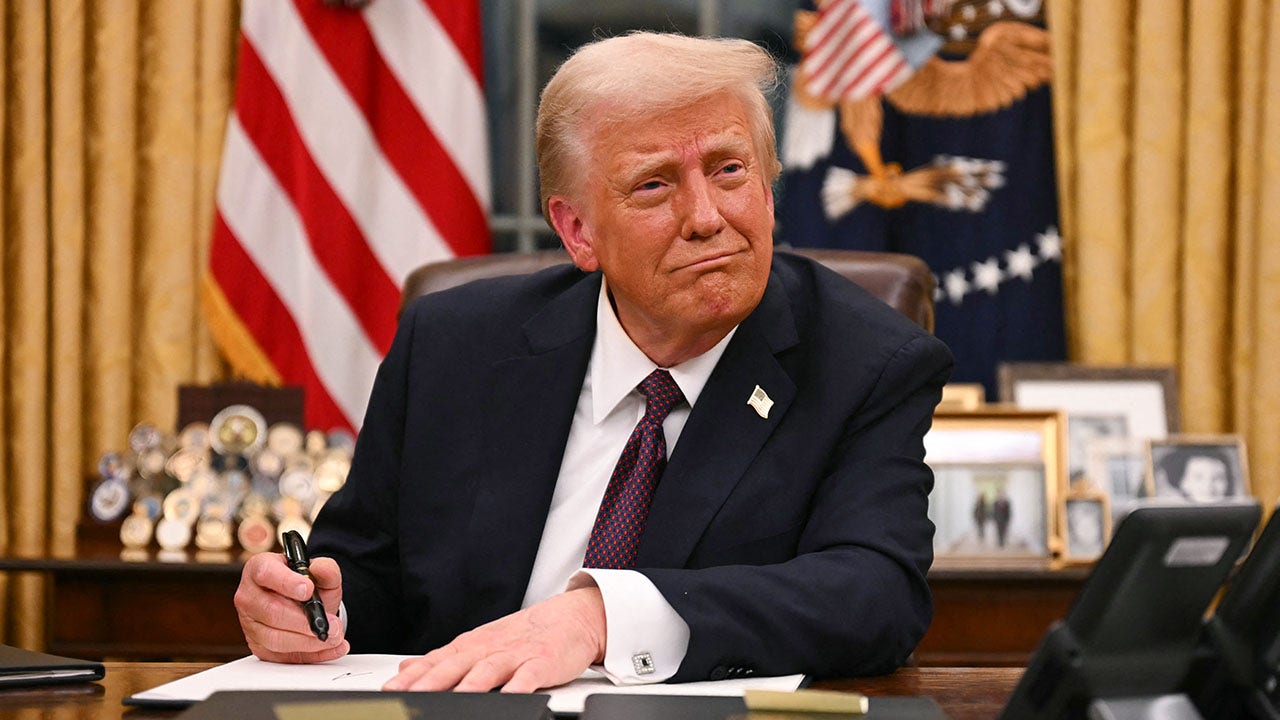Vice President Kamala Harris chose her running mate today to face off against former President Donald Trump and J.D. Vance in November’s presidential election, according to multiple reports.
Harris chose Minnesota Gov. Tim Walz as her potential vice president on Tuesday ahead of a rally in Philadelphia, according to numerous media reports. She went unchallenged in the quest for the party’s nomination after securing the votes of the overwhelming majority of President Joe Biden’s delegates quickly when he dropped out of the race. Harris entered the race just thirty minutes after Biden ended his bid and endorsed her. (RELATED: Biden’s Lack Of Faith In Harris Reportedly Delayed Decision To Drop Out)
Atmosphere at a campaign rally for Democratic presidential candidate, U.S. Vice President Kamala Harris at the Georgia State Convocation Center on July 30, 2024 in Atlanta, Georgia. (Photo by Julia Beverly/Getty Images)
Since announcing her bid, the Harris campaign has been riding a “honeymoon” bump that has brought surging polls, packed rallies and big fundraising hauls. There has been one element noticeable absent: Harris has not done a single interview since becoming the presumptive Democratic nominee nearly two weeks ago. (RELATED: Kamala Harris Fails To Sit For Interview During First Week Of Presidential Campaign)
Harris has been open to more media appearances than Biden throughout their administration, though in 2021 her office began taking a more careful approach, Semafor reported. The vice president’s shift in media strategy apparently began after a sit down interview with NBC News’ Lester Holt where she admitted she still hadn’t visited the southern border. Several years later, the clip still continues to hound Harris, potentially lingering longer due to her lack of other major interviews.
Pennsylvania Gov. Josh Shapiro, Arizona Sen. Mark Kelly and Kentucky Gov. Andy Beshear were rumored to be the other top contenders for the VP pick in the home stretch. Each of them, as well as Walz, are white men, with the exception of Shapiro, who is Jewish — many Democratic strategists and political observers theorized that the Harris campaign would not want to stack the ticket with two minority candidates.
Walz was a favored choice of the progressive left, who lobbied hard in his favor when the choice was reportedly narrowed down to he and Shapiro. Anti-Israel activists in the Democratic Party were harshly critical of Shapiro for his pro-Israel stances and frosty relationship with labor unions. Contrarily, many Democratic strategists advocated for Shapiro because of his high favorability in his home state of Pennsylvania, which is widely viewed as the most critical state in the electoral college for November’s election.
The Harris-Walz ticket will now have about three months to compete with Trump and Vance, who had been polling ahead of Biden before Democratic power players pushed to replace him with Harris without her receiving any primary support.
Read the full article here





![Mika Brzezinski’s On-Air Breakdown Over Trump’s ‘America’s Heartbeat’ Remark [WATCH] Mika Brzezinski’s On-Air Breakdown Over Trump’s ‘America’s Heartbeat’ Remark [WATCH]](https://www.rvmnews.com/wp-content/uploads/2025/01/2025.01.09-10.15-rvmnews-677fa1dd9f311.jpg)



![Stephen A. Smith Blasts AOC Over ‘21st Century Fascism’ Claims [WATCH] Stephen A. Smith Blasts AOC Over ‘21st Century Fascism’ Claims [WATCH]](https://www.lifezette.com/wp-content/uploads/2024/11/2024.11.22-02.06-lifezette-67408fd0b816c.jpg)